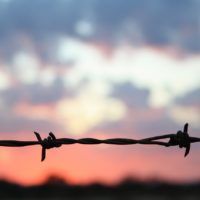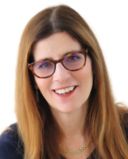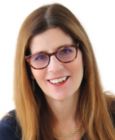Ethics and Morality
Lessons Learned From Auschwitz
Lessons to help at a time when the violence of intolerance continues
Posted July 12, 2016

The late Elie Wiesel, the Auschwitz survivor who, more than anyone else, seared the memory of the Holocaust on the world’s conscience spoke often about the perils of indifference.
My mother, also an Auschwitz survivor, was grateful to Elie for his eloquent witness for the sufferings people endured in World War II. My mother worried that when the survivors died the lessons learned about violence, inhumanity, and racial ideology would be forgotten.
So, as the daughter of Holocaust survivors, I feel a responsibility to share the lessons my parents taught me in hopes that the lessons might be of some use at a time when the violence of intolerance continues to characterize our world.
Both my mother and father were survivors of Auschwitz, Dachau, and Buchenwald. They had decided not to frighten me with their recollections about the death camps. They were determined to make my childhood happy. Not that the past was a forbidden topic with my parents. They spoke truthfully about their experience in concentration camps, but only when asked.
Just as I can’t place an exact date on the moment I learned to talk or to read, I can’t pinpoint exactly when I first learned that, apart from my parents, every family member (besides a few cousins) was killed by the Nazis. No one ever sat me down and told me such a thing had happened. I would learn about the past haphazardly, shocked by each discovery. Stories of the Holocaust had me trying to imagine the horrors that contained my mother’s and father’s history.
I never stopped asking my parents questions. One question after another: Who put those numbers on your arms? How did my aunts, uncles, and grandparents die? Did the guards ever hurt you? How did the Germans know you were Jewish? Findings of the atrocities greatly affected my young mind. What inquisitive child could accept the Nazi assault on humanity?
What the Germans call Verganenheitsbewältigung — mastering the past, coming to terms with my parent’s experiences of the Holocaust — is a painful and difficult legacy. Growing up, I often wondered about the meaning of my parents’ sufferings. Like one might wonder about the meaning of life. I continue to ponder these questions, particularly this week with the recent string of racial violence in the U.S.
I asked my mother once “Mommy, do you think your sufferings had any special meaning?” “Do I think my sufferings had any special meaning?” my mother repeated. “Your question is, maybe, did it teach me something? You should read Viktor Frankl’s story about Yehuda Bacon, an Israeli sculptor who was in Auschwitz when he was a teenager like me. He explains it better than I can.”
So I read the story. And this is what it said: “As a boy, I thought: ‘I will tell them what I saw, in the hope that people will change for the better.’ But people did not change and did not even want to know. It was much later that I really understood the meaning of suffering. It can have meaning if it changes oneself for the better.”
As I grew older, I carried this lesson with me. And later I learned that suffering can have meaning if it changes not only one’s self for the better but also if it changes one’s ability to understand and share the feelings of another.
Several months before her death, someone from the Shoah Foundation asked my mother: “What would you like to tell the world about the pain you suffered in Auschwitz?” My mother paused for a moment and then said: “I want the world to know that no one ever again should suffer as I did.”
My mother’s answer surprised me. I knew she harbored hatred against the German and Polish people. It was the cocoon that nurtured her. And she never flew free of it. The pain on her face was always palpable. She lived with the ghosts of the Holocaust every day. Still, despite her pain, or maybe because of it, she focused on her desire to ameliorate others’ sufferings. It was her final statement about Auschwitz.
And it was an expression of compassion.
Copyright 2020 © Mona Sue Weissmark All Rights Reserved
Parts of this article appeared in the Chicago Tribune and in my book Justice Matters: Legacies of the Holocaust and World War II (Oxford University Press). My next book, THE SCIENCE OF DIVERSITY, to be released by Oxford University Press in June 2020 can be pre-ordered now! Learn more & pre-order here:
https://www.amazon.com/gp/product/0190686340/ref=dbs_a_def_rwt_bibl_vpp…
https://global.oup.com/academic/product/the-science-of-diversity-978019…;
References
Weissmark, M. (forthcoming 2020). The Science of Diversity. Oxford University Press, USA.
Weissmark, M. (2004). Justice Matters: Legacies of the Holocaust and World War II. Oxford University Press, USA.
Weissmark, M. & Giacomo, D. (1998). Doing Psychotherapy Effectively. University of Chicago Press, USA.




